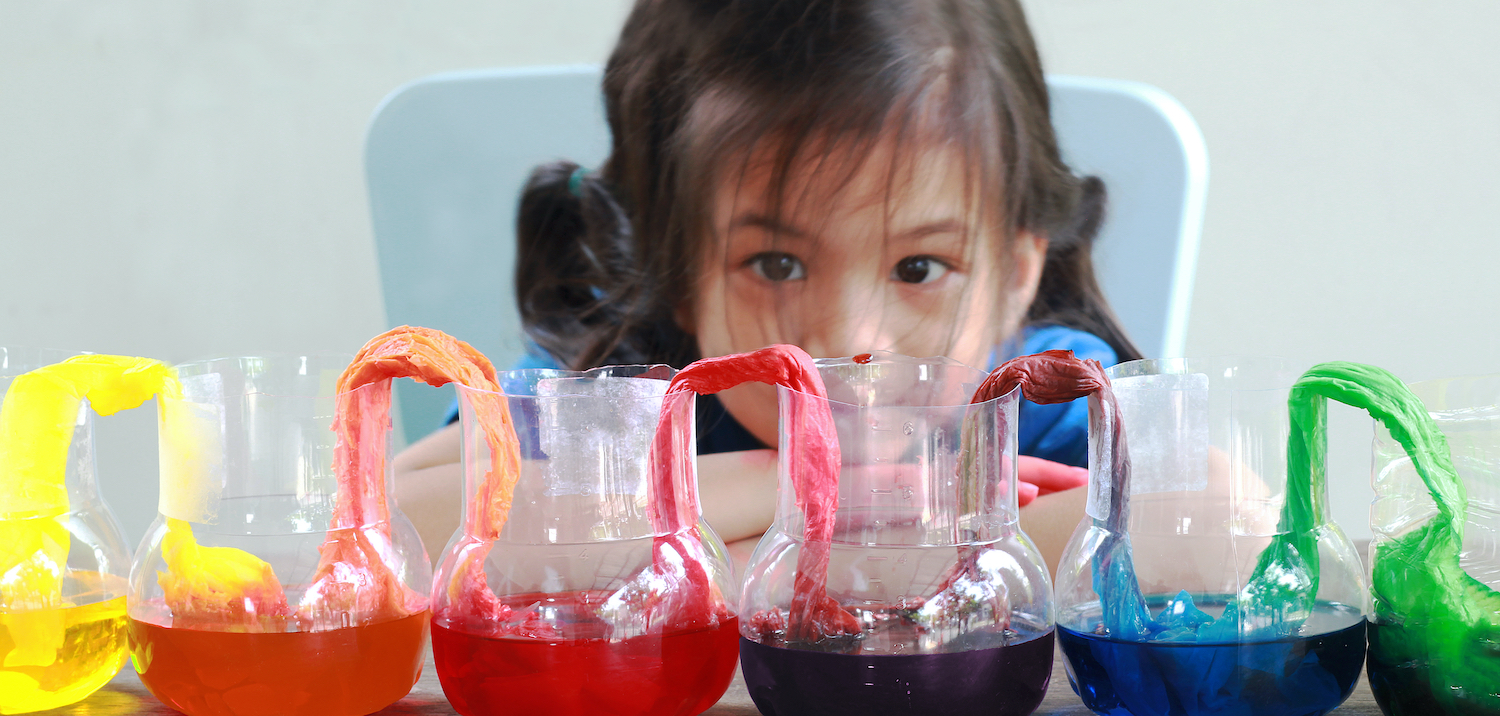
Shutterstock
From climate change to artificial intelligence, bioethics to identity, you don’t have to look far to see that today’s young people are growing up in a world which poses some complicated questions, and demands wise decisions. As the Faraday Institute’s Youth and Schools team, we are working to help young people and their influencers confidently explore the big questions which are key to engaging with these challenges – particularly those of science and faith.
We often meet children as young as three or four who are keen to ask and explore huge questions, such as ‘If God made everything, who made God?’, ‘Can a scientist believe in miracles?’ or, ‘Could a black hole crush Jesus?’. As daunting as these questions can be to the adults in the firing line, we think this curiosity is great news! Questions like these cross the supposed boundaries between subjects like science and religion. Learning to enjoy and explore such questions will help this young generation navigate the complex issues they face confidently and thoughtfully.
Unfortunately, research and experience show that by the time students begin their secondary education (age eleven in England and Wales), many are sure that science and faith can’t work together. This idea doesn’t necessarily come from direct teaching, but can be influenced by teachers, parents and youth workers who feel they lack the confidence, expertise or resources to address science-faith questions. Not wanting to mislead or misinform, many of us often choose to avoid these topics – inadvertently communicating that these questions shouldn’t be asked. This can ultimately lead to young people dismissing either science or religion, and avoiding science-faith topics altogether.
So, what are we doing about it?
If your church or classroom has hosted a traveling treasure trove of fossils, seen money set on fire, or witnessed children asking bigger questions than ever before, then the chances are, we’ve already visited you. We’ve been leading inspiring science-faith sessions for children, young people and educators since 2013, as well as publishing resources for primary-aged children.
We have seen first-hand the value of encouraging conversations about science and faith within churches. In particular, we want to help church leaders make the most of their opportunity to show the excitement and value of using science and faith to explore different aspects of God’s creation, character and love. We believe that, by taking both the Bible and mainstream science seriously, children can discover engaging and reliable ways of exploring the big questions and challenges facing them in the modern world.
Our team has recently doubled in size to start a new phase of work. We will continue to develop sessions and resources for young people, while also developing ways of equipping adults to run sessions themselves. Whatever your role or situation, we hope you find our existing resources useful, and are encouraged to follow our progress as we enter this new phase.
Resources for YOUR young people
You can already visit www.faradaykids.com to browse some answers to frequently asked questions – aimed at ages two through eleven. The website also contains activity suggestions and a list of resources we think are helpful for exploring science-faith topics. Books marked ‘Faraday Kids’ have been produced in a collaboration between our team and various publishers, authors and illustrators, and are available at a discount from the Faraday Institute’s online bookshop.
Church and youth leaders may be particularly interested in the illustrated Book of Wonders and its associated activity book. These books work well alongside the ‘Wonder Zone’ pack, which provides all you need to host a 5-day holiday club encouraging children to discover the wonders of the Universe and how the God behind all of it wants to get to know them too.
Other useful resources include ‘Messy Church Does Science’, produced by Revd Dr Dave Gregory with the Messy Church team. It provides guidance for parents and leaders to run interactive science sessions which explore the wonder of creation and aspects of the Christian faith, demonstrating that science and faith are complementary.
Plans for the future
Increased Online Communication
Our online presence and resources are amongst the first things we’re working to develop further. We are expanding faradaykids.com and also launching websites for Teens and Educators. We’ll also be launching social media channels to help keep you up-to-date with our work, opportunities and resources.
Socially Distanced Session Resources
We’ll soon be recording short videos of experiments, presentations, Q&A sessions and more, to support any science-faith sessions you may like to run. Perhaps we can even ‘virtually visit’ your church or school through a live online session!
Training Opportunities
We currently offer informal training opportunities for church leaders and youth workers (online, and in-person where possible in future) and we’re working hard to develop more substantial programmes and opportunities.
We also run specialised communication training workshops. These go a little deeper and are offered to enthusiastic people with science or theology backgrounds who are keen to lead science and faith sessions with young people.
We hope our work and resources can help you support your young people as they explore their big questions of science and faith, and engage with life’s challenges. Keep an eye on the Faraday Institute newsletter to see when our social media channels and new websites are launched, and please feel free to contact us at kids@faraday.cam.ac.uk with any enquiries.




